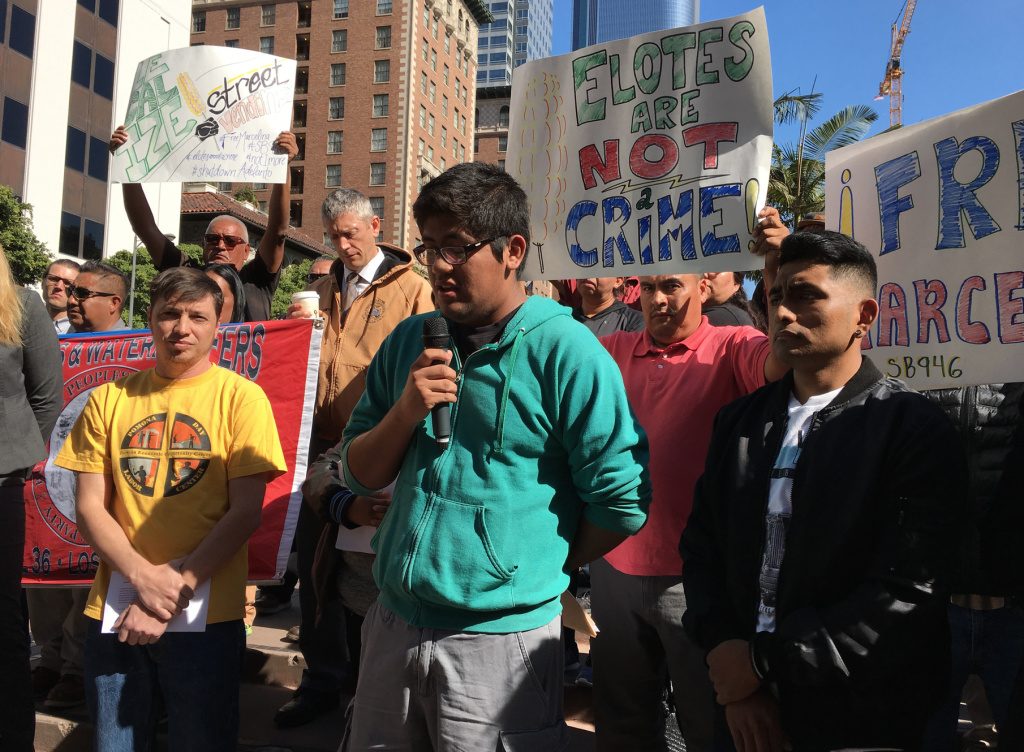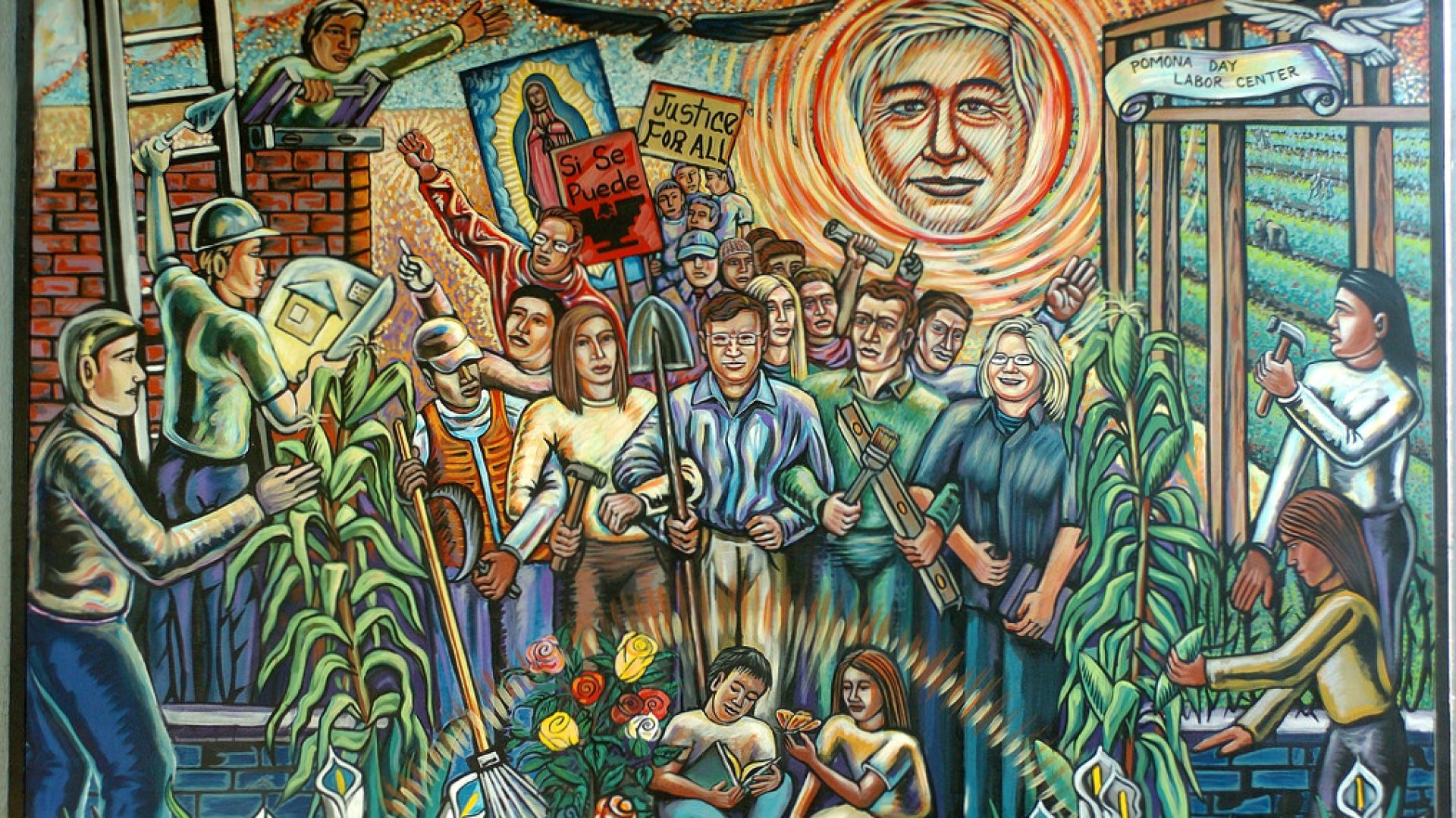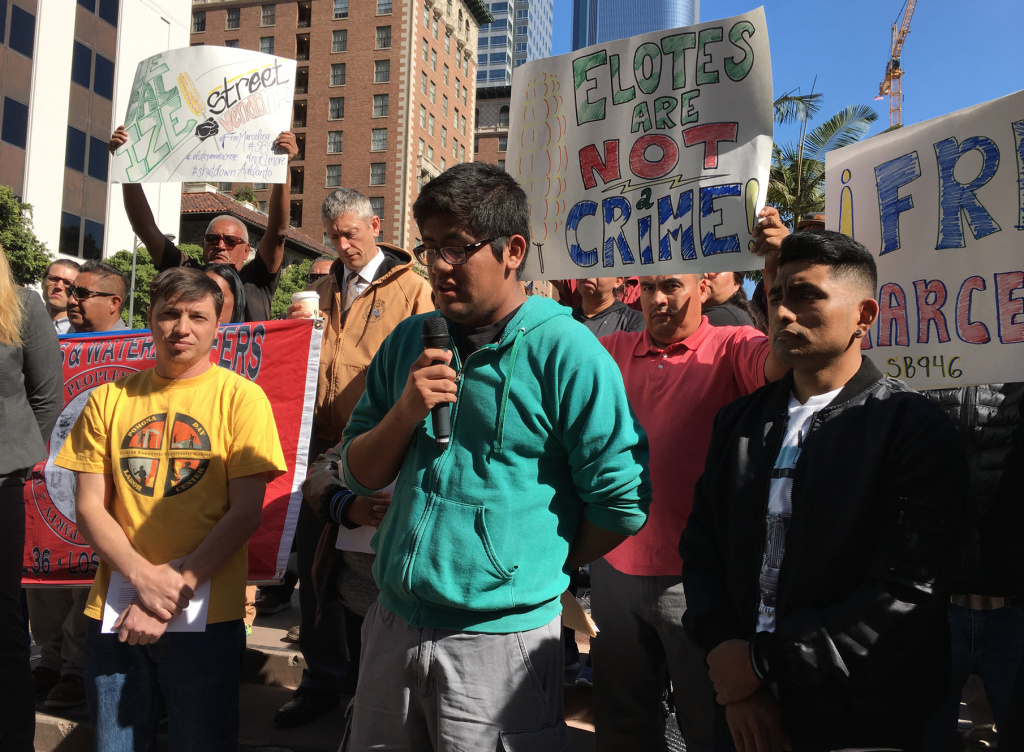Originally Published in KPCC
By

A vendor arrested in San Bernardino County last fall on a misdemeanor charge for selling corn in a park now faces deportation, her case now a rallying point for advocates pushing to decriminalize street vending.
Marcelina Rios was arrested in Rancho Cucamonga in October for selling elotes, corn on the cob, according to her lawyer. She had been cited before, but this time the charge was a misdemeanor and she was arrested.
The mother of five was taken in by local authorities. When she was fingerprinted, U.S. Immigration and Customs Enforcement agents were alerted and picked her up on a prior deportation order.
“If street vending were not a crime, the fact of the matter is, she would not have been arrested,” said Emi MacLean, an attorney with the National Day Laborer Organizing Network in Los Angeles. “If street vending were not a crime, she would not have been in the custody of the San Bernardino Sheriff’s Department.”
Had she not been in the sheriff’s custody, she likely would not have landed on the immigration radar, immigrant advocates said.
MacLean and other supporters rallied Thursday outside the downtown Los Angeles immigration court downtown where Rios is seeking to reopen her deportation case. Meanwhile, Rios is being held in an immigrant detention center in Adelanto.
“It’s been really difficult, because she’s the one that [had] been doing everything around the house, like taking care of the bills, medical expenses,” said Roberto Rosas Rios, her 19-year-old son.
He said in his mother’s absence he, his father and siblings have been helping care for their mentally disabled sister, 17, and their youngest brother, who is three.
Lt. Sarkis Ohannessian with the San Bernardino County Sheriff’s Department said Rios had been cited in the past for illegal street vending. Those were administrative citations, he said. But Ohannessian said authorities had received complaints about the street vendor and, this time, Rios received a misdemeanor citation for conducting business without a license.
Ohannessian said the department did not voluntarily turn Rios over to immigration agents, but they arrived at the jail and waited for her release.
“When Ms. Rios was released from our custody and walking toward the front lobby of the jail, that is where ICE contacts them, in that area,” Ohannessian said.
ICE officials did not immediately comment on the case.
The deportation order for Rios was issued a decade ago, MacLean said, after she was caught crossing the border when returning from a visit to her native Mexico to help care for an ailing family member.
A bill recently introduced by California Sen. Ricardo Lara (D-Bell Gardens) seeks to decriminalize street vending statewide, making vendors subject only to an administrative penalty. Among the goals of the measure is to keep street vendors off the radar of immigration officials.
The bill would also push local governments to come up with a system to license and regulate street vending, a process that Los Angeles has struggled with for years. If jurisdictions don’t come up with a permitting system, they would not be able to penalize street vendors.
The Los Angeles City Council voted last year to remove criminal penalties for sidewalk vending. But street vending in the city remains illegal, and vendors are still subject to citations and fines.
L.A. officials have proposed allowing street vending citywide while designating no-vending areas and giving neighboring merchants a say on whether street vendors can operate nearby, an idea that vendors oppose.
Some cities, including Pasadena, allow street vending with a permit.
A spokeswoman for Rancho Cucamonga said street vendors who wish to operate in the city must obtain a business license and a permit. She said Rios did not have these.


